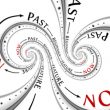Write Like There's No Tomorrow Recently, Mychal Denzel Smith was a guest on my podcast, Write-minded. I asked him, “How do you think about consequence when you set out to write your thoughts and opinions about what you see out there in the world?” I loved his answer, which was to turn the question back on me: Consequence in what direction and for whom? He went on to ponder the question of consequence. If my question was about him, the writer, then what are the personal consequences … [Read more...]
Pushing the Fear of Being Sued to Where It Belongs—on the Backburner
Brooke Warner and I have taught hundreds of students in our memoir workshops and classes, and presented memoir topics at dozens of conferences. In every single course we teach, a writer will invariably raise her hand, looking a bit pale and scared, and say: “I can’t write my story because I’m afraid of being sued.” Other writers can’t get the image of angry ex-partners or friends or coworkers out of their minds. If you write what really happened, can these aggrieved people sue you? Fear … [Read more...]
Writing Through Exposure in Memoir
Memoir, as a genre, requires intimacy and self-exposure. It demands confession and deep dives into the truths of our inner lives. When we write a memoir, we enter into a contract with the reader: we’ll reveal the truth of our experiences, our emotional truth. But how much? How detailed? And what are we allowed to hold back? These are questions all memoirists encounter, especially at the beginning of the writing journey.Another question every memoir writer will face has to do with exposure—how … [Read more...]
Theme as Your Memoir’s North Star
Is there such a thing as a memoir without a central theme or themes? Yes, but it’s called an autobiography, or just a bunch of strung-together scenes about “what happened,” which is not enough to make a meaningful memoir. Theme can be a tough topic for memoirists to wrap their minds around. After all, most of us have lived very big and full lives and sometimes writing with theme in mind feels like reducing your experience to just a small part of your life—not necessarily representative of the … [Read more...]
Getting to What Matters Quickly and Succinctly
What’s your focus and what’s your point? These are the most important questions you can ask as you start to unwind the threads of your life in your memoir. Brevity forces us to think about the best words or brief phrases that express a complex story. When writers are asked, “What’s your memoir about?” Brooke and I observe that oftentimes the responses can be a meandering attempt to find the heart of the story, often missing the essence of the message they want to convey. Publishers and … [Read more...]
Rules to Live By if You Feel Freaked Out About Writing About The People in Your Life
"Don’t show your work to any family member or friend in question until it’s ready to be published. Yes, that might take a while. That is the point. Read on." One thing I know from teaching memoir over the years is that memoirists freak out about writing about other people in their life. Since memoir means writing the truth, my students often ask, Isn’t revealing my true thoughts about myself exposing enough? To write about others brings up all kinds of fears: What if they sue me? Hate me? … [Read more...]
Where Are You NOW? Tracking “Now” in Memoir
Because I have the great honor of reading about 70,000 words (an entire book-length manuscript) every single month for student homework alone, I come across this problem of when “now” is in memoir on a weekly basis. “Now” cannot occupy two separate spaces, times, or eras. For your readers, there can only be one now. One of the most jarring things beginning memoirists do is to pull the reader out of a given scene by referring to the “now” of today, when they’re writing the book, in 2018 or … [Read more...]
Practice Makes Perfect: Why Practicing the Art of Scene Writing Is the Path to Memoir Excellence
Scenes are the building blocks of memoir. Given this is so, you can’t really begin to write a great memoir—heck, even a good memoir—until you master scene. Linda Joy and I teach scene in nearly all the classes we teach. (In fact, we did a recent hour-long intensive on scene that’s available to view here.) And as much as we know how important it is for memoirists to wrap their minds around the mechanics of what’s involved, there’s no substitute for practice. In my opinion, practice comes in … [Read more...]
My Top 10 Fall Memoir Tips
Fall is right around the corner, and I'm sharing my top 10 memoir tips as inspiration for this season I love, which can be a prolific time for writers, but also sometimes difficult. We've got the fresh start of back-to-school alongside holiday overwhelm, presenting conflicting energies for some. So dive in, and share anything that keeps you moving from month-to-month too. 1. Choose a structure Memoirists can benefit from having a structure in place before they start writing. You can and … [Read more...]
Who’s Driving Your Memoir?
In our long memoir course there’s an image I share around the halfway point to help students recognize tendencies they might have in their writing practice around control. I ask them to consider the idea that either they or their memoir is driving their memoir. In writing, we can want to be in control, which can lead to always needing to be the one to drive; we can also resist being in control, wanting to turn everything over to the creative process, which may work for a while, but eventually … [Read more...]









